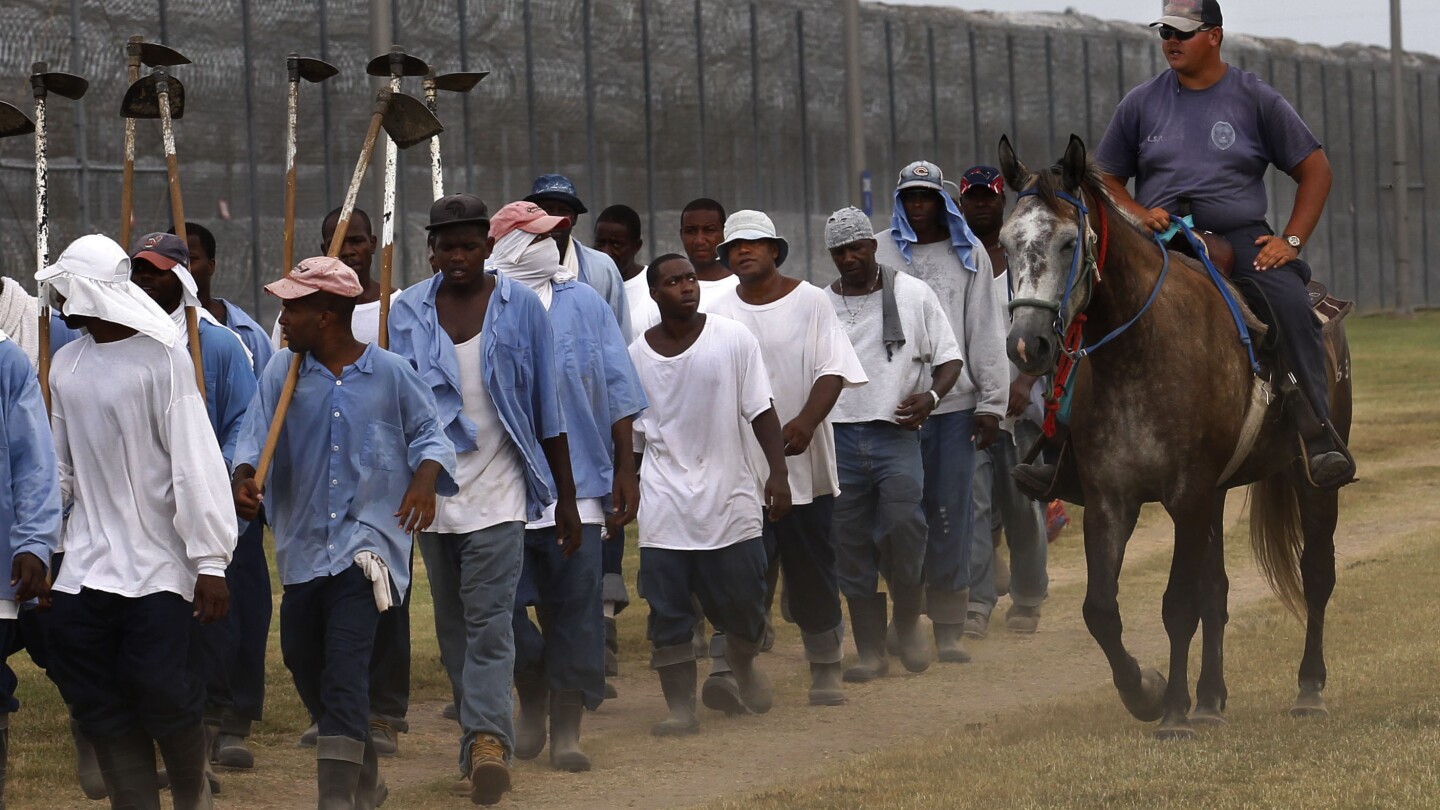Beneath the blazing summer sun on a former slave plantation, Lamont Gross and fellow prisoners stooped in long rows, picking vegetables by hand under the watchful eyes of armed guards on horseback. He said breaks were short and infrequent, with nothing to protect workers from the heat.
“I saw guys collapse,” Gross said of his days on the so-called farm line at Louisiana’s state penitentiary, where men work for pennies an hour or nothing at all and face punishment if they refuse. “There were dudes that got heat stroke. There were dudes with underlying conditions, older or had some sort of disability, but they had to go out there, too.”
As daily temperatures hit record highs across much of the South, a federal judge took an unusual step, challenging the treatment of mostly Black incarcerated workers in the fields.
America’s largest maximum-security prison, known as Angola, sits on 18,000 acres. It was once a patchwork of cotton fields where, historians note, even enslaved pregnant women and young children worked from dawn to dusk during the busiest and hottest harvesting months. Prisoners have toiled on the same farm lines since after emancipation often without shade, adequate work breaks or even sunscreen.



Maybe - and just hear me out - maybe that’s not a bad thing if your work is all slave labor. ¯\(ツ)/¯
“That’s just Yankee-thinkin.”